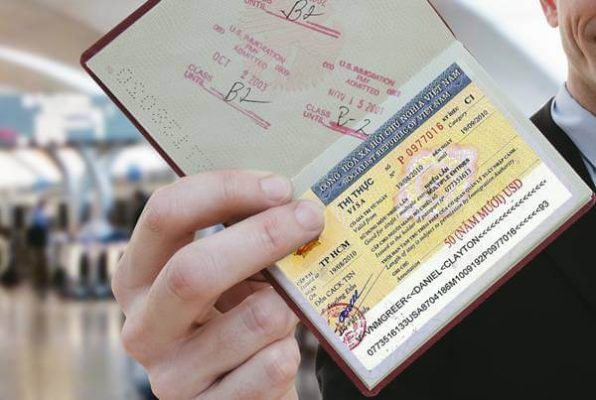Update on visa policy due to COVID-19
From March 22 until further notice, Vietnam has suspended entry for all foreign nationals. Only Vietnamese nationals, foreigners on diplomatic or official business, and highly skilled workers are allowed to enter the country at this time. Anyone entering Vietnam must undergo medical checks and 14-day quarantine upon arrival.
All foreigners who entered Vietnam after March 1 on visa exemptions, e-visas, or tourism visas will be given automatic stay extensions at no charge until July 31, 2020. Travelers still in the country should declare their temporary residence to local police, through their landlords or hotels, and must complete Vietnam’s online health declaration here.
Visitors who entered the country before March 1 may be considered for the extension, provided they can show an official letter from their embassy or consulate stating they were unable to leave the country due to objective reasons. Foreigners who have undergone quarantine or treatment for Covid-19 in Vietnam are also eligible for the extension. They must bring their certification documents to show immigration officials when leaving Vietnam.
Vietnam Visa Exemptions
Vietnam offers visa exemptions ranging from 14 to 90 days to citizens of 24 countries holding valid ordinary passports. The full list of countries with visa exemptions is below. To view visa exemptions for diplomatic and other passports, please visit this link.
TIP: All nationalities traveling directly to Phu Quoc Island can visit the island for 30 days visa-free. To do this you will need to show an outbound ticket on arrival in Vietnam.
Notes on visa exemptions:
- As of Mar. 21, 2020, Vietnam will temporarily suspend visa exemptions for citizens from Belarus, Russia, and Japan.
- Starting Mar. 8, 2020, Vietnam has temporarily suspended visa exemptions for citizens of the European Union, the United Kingdom, and as well as other countries with more than 500 cases or growing more than 50 cases a day.
- As of Feb. 29, 2020 visa exemptions for South Koreans will be temporarily suspended until further notice, and as of Mar. 2, 2020 visa exemptions for Italians will also be temporarily suspended.
- The exemptions listed above for Sweden, Norway, Denmark, Belarus, Finland, Japan, South Korea, and Russia are valid until Dec. 31, 2022.
- The exemptions listed above for the United Kingdom, France, Germany, Spain, and Italy are valid until June 30, 2021.
- Spouses or children of Vietnamese citizens are allowed to stay in the country without a visa for six months and must show papers proving their eligibility. For full requirements, please visit this link.
Vietnam Electronic Visa (e-Visa)
Vietnam’s e-Visa is now available to nationals of 80 countries:
- Andorra, Argentina, Armenia, Australia, Austria, Azerbaijan, Belarus, Belgium, Bosnia and Herzegovina, Brazil, Brunei, Bulgaria, Canada, Colombia, Croatia, Cuba, Cyprus, Czech Republic, Chile, China (including Hong Kong and Macau passports), Denmark, Estonia, Fiji, Finland, France, Georgia, Germany, Greece, Hungary, Iceland, India, Ireland, Italy, Japan, Kazakhstan, Latvia, Liechtenstein, Lithuania, Luxembourg, Macedonia, Malta, Marshall Islands, Mexico, Micronesia, Moldova, Monaco, Montenegro, Mongolia, Myanmar, Nauru, Netherlands, New Zealand, Norway, Palau, Panama, Papua New Guinea, Peru, Poland, Portugal, Philippines, Qatar, Romania, Russia, Salomon Islands, San Marino, Serbia, Slovakia, Slovenia, South Korea, Spain, Sweden, Switzerland, Timor Leste, United Arab Emirates, United Kingdom, United States of America, Uruguay, Vanuatu, Venezuela, and Western Samoa.
The e-Visa takes three working days to process, costs 25 USD, and is a single-entry visa, valid for 30 days. You can enter Vietnam on an e-Visa at any of the country’s eight international airports, including Hanoi, Ho Chi Minh City, and Danang, as well as 14 land crossings and seven seaports.



